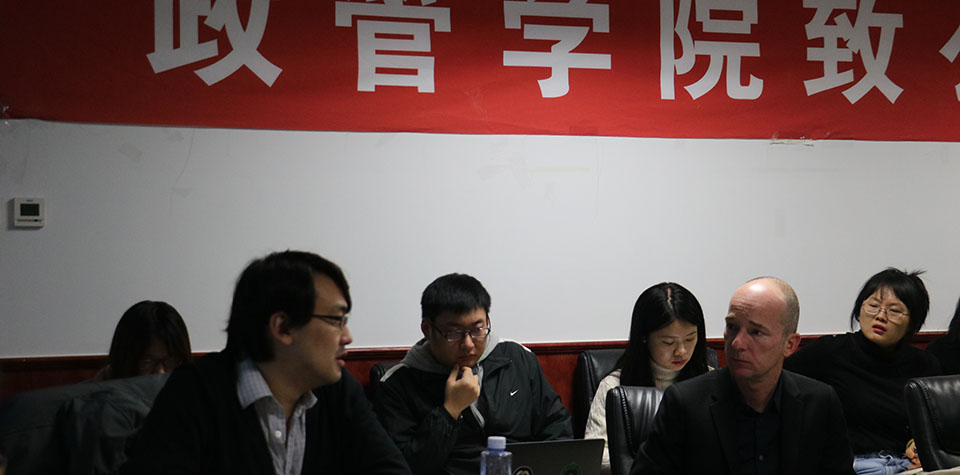
TALK: “On the Reproduction of Capital in the Era of Artificial Intelligence”
December 3, 5 pm
Shaanxi Normal University, Xi’an, China
December 5, 7 pm
We’re currently experiencing a renaissance in artificial intelligence and a massive rollout of goods and services containing AI. After decades of research and development, we are now entering into the ‘age of implementation’. Products employing AI are reaching product maturity and are about to conquer the mass market, AI becoming a base technology for a multitude of digital applications like electricity did in the past. Large amounts of data and users who create them have become the decisive ingredient for their optimisation as well as market opportunities.
Three key properties of AI as capitalist technology can be observed. The generation and evaluation of user data, and the feeding of this data back into systems to optimise services and products becomes a core activity in a platform economy. Data processing and optimisation of services is approaching real-time, i.e., in (near) simultaneity with processes in reality, resulting in real-time improvement of already existing products and services. These technologies are used to predict and forecast future occurrences. For each of these aspects AI technologies play a crucial role. The consolidation of the platform economy and its function as an aggregate of digital capital are making AI the latest machine of capital.
How does AI fit in the reproduction process of capital?
In the following I will present three mechanisms for capital reproduction where AI plays a key role:
1) The private use of general intellect. general intellect as a service: exploitation of general intellect. Although the general intellect has in fact already been socialised, it has been successfully packaged as a proprietary service and exploited for profit by the general intellect industry, as one could quite justifiably label the tech corporations. Although they constitute a social commons, a handful of private actors generate proprietary services with them in order to secure their own profitability. General knowledge is becoming the most important productive force of digital capitalism, yet the latter has paradoxically succeeded in valorising this free social knowledge in the proprietary service form.
2) The new role of the user as hybrid between worker and client. New forms of exploitation are joining the appropriation of surplus value in the form of wage labour, which appears as only one specific form of labour exploitation in the direct production process. Today the model of user generated content enjoys widespread implementation: One billion people are bound up in the process of user-generated capital valorisation, working directly for capital.
2) The new role of innovation in an information-centered production, as direct source of profit as opposed to its traditional role in comptetion. In Marxian critique of political economy, innovation exhausts itself because it is external to the ‘normal’ production process; it does not initially play a role in the capitalist production process. Innovation by itself does not produce value and does not concern the labour theory of value. Here, innovation remains a special case, an exception, a coup scored by a single capital against the competition. The consequence of this situation is the generation of an ever-changing product, a product which constantly and continuously modifies itself and thus always stays a step ahead of the competition.
Ernst Bloch once remarked that it was not disputed in Marxist circles ‘that each latest machine which late-bourgeois technology produces is the best’.[i] With good reason, artificial intelligence can be described as the latest machine of digital capitalism, at least for the time being. With its help, digital capitalism has succeeded in consolidating a new mode of social operation in which the extraction, evaluation and valorisation of data has become the focus of economic activity.
Capital in its AI-stage establishes a new gesellschaftliche Betriebsweise (social mode of functioning) in which the extraction, evaluation, and exploitation of data becomes centre court operation/ economic and social activity.
Artificial intelligence is the latest innovation in digital capitalism, which aims to expand its global role in the economy and society, consolidate its business models and secure its exploitation model. AI is understood and criticized in Marxist tradition as part of platform-capitalist reproduction.
[i] Ernst Bloch: Heritage of Our Times, Berkeley and Los Angeles 1991, 3.
